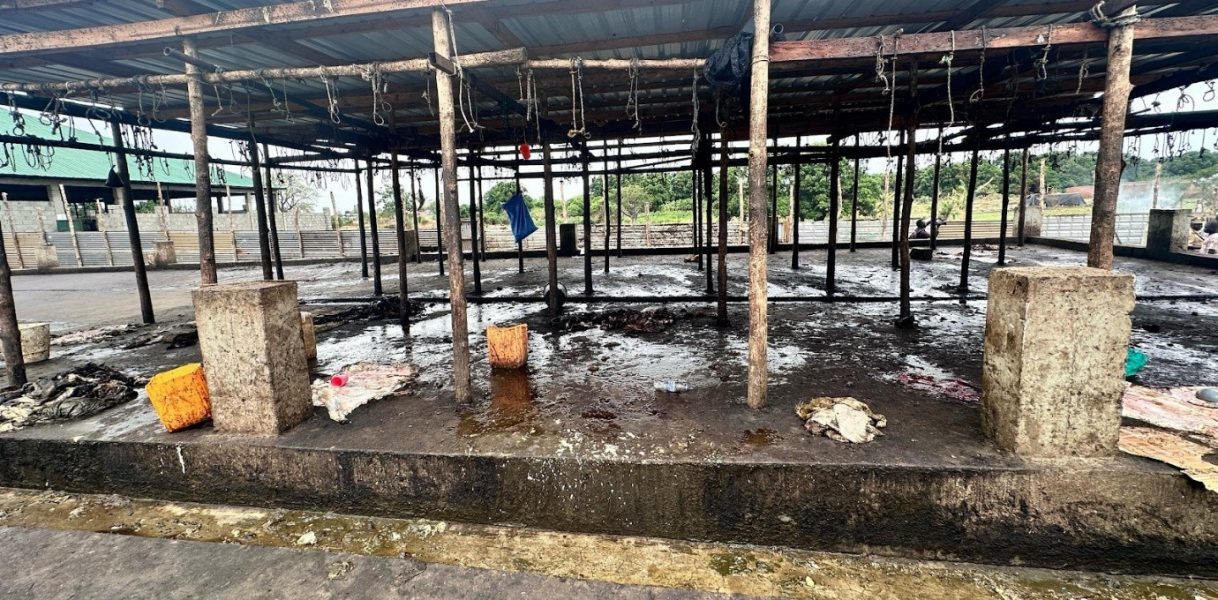
The Bilnyang and Dubai slaughterhouses located in Mangala Payam have been closed by the Central Equatoria State government due to poor waste management and associated health risks.
The decision follows growing concerns from residents of Gumbo regarding the unsanitary conditions and solid waste issues at these facilities, which they claim have led to an increase in cholera cases and other diseases.
During a sanitation inspection on Wednesday, Central Equatoria State Minister of Animal Resources, Fisheries, and Tourism, Alex Lotiyu Elia, ordered the immediate shutdown of the slaughterhouses to prevent further public health crises.
“These slaughterhouses must be closed down immediately until we address the issues of sanitation,” Lotiyu told the Standard Zone News stressing that “The lives of humans are more important than the revenue we are generating.” said Lotiyu.
He assured the public that the closure is temporary and aimed at ensuring compliance with proper hygiene standards.
Lotiyu called on the leadership of the butchers’ union and owners of the slaughterhouses to collaborate with the ministry in resolving sanitation issues.
“I urge the owners of these facilities and the leadership of the butchers’ union to come to the ministry for a meeting. We need to work together to address sanitation issues,” he added.
The closure sparked mixed reactions among stakeholders. Paul Bol, the owner of Bilnyang slaughterhouse, criticized the government’s decision, arguing that it would disrupt meat supply and adversely affect local butchers.
“The government should give us a chance to work. The slaughterhouse should not be closed,” said Bol. “Where will the butchers slaughter the animals? Where will the citizens get meat from? We need to wait until the meeting is done with the government.”
Meanwhile, local residents welcomed the move, citing the long-standing health hazards posed by the facilities.
Nyandeng Kuol, a community member, expressed relief, saying, “We are happy for the closure of the slaughterhouse because this place has a bad smell, and it keeps increasing diseases among our children. Last week we raised this issue with Rajaf Payam and told them that we want the slaughterhouse relocated.”
The Ministry of Animal Resources has not provided a timeline for reopening the facilities, but discussions with stakeholders are expected to begin soon to address the sanitation challenges.

